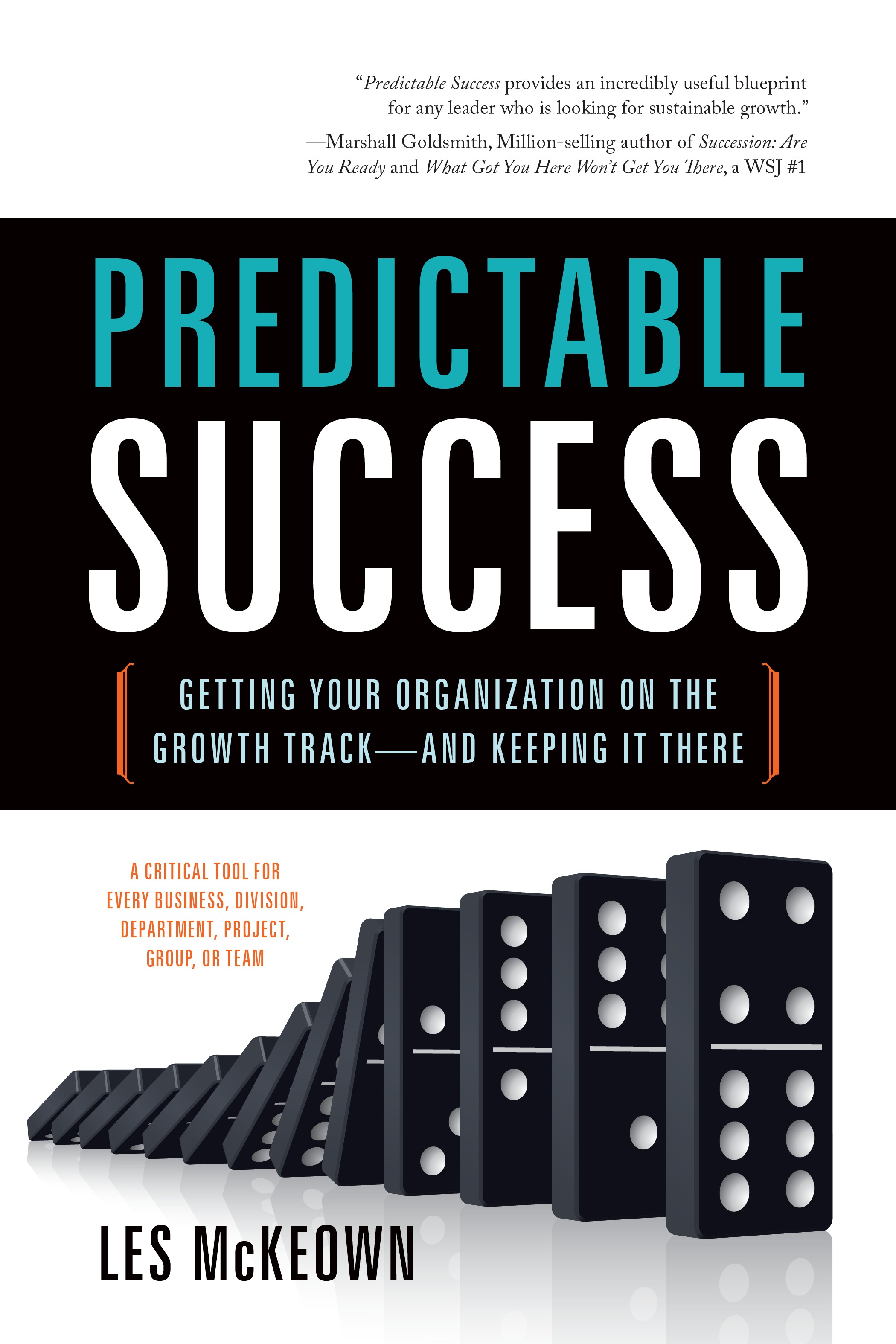 Getting Your Organization on the Growth Track–and Keeping It There
Getting Your Organization on the Growth Track–and Keeping It There
How can a person achieve and manage “Predictable Success” for its company?
Today we put forward some incredible assets that can prove to be decisive in any firm’s development.
Who Should Read “Predictable Success”? And Why?
It is not surprising at all, that “Predictable Success” comes highly recommended to entrepreneurs who’ll surely be amazed by the unpredictable nature of this book. It’s a relatively fresh perspective and guidance for every business which intends to apply some ideas for possible expansion.
To save yourself from going bankrupt, you should avoid such dramatic changes. The “Death Rattle” starts when certain business is oblivious to customers’ demands and their specific requirements. This book is much more than an instruction manual; it is intended for entrepreneurs, managers, economists, students, financial advisors, etc.
About Les McKeown
 Les McKeown is an owner and president of Predictable Success. He has over 25 years of experience in the business area, and he has helped many individuals to launch the start-up companies.
Les McKeown is an owner and president of Predictable Success. He has over 25 years of experience in the business area, and he has helped many individuals to launch the start-up companies.
As the CEO of Predictable Success Les is the founder of 40 companies momentarily and was among the partners, who started a consulting company which educated other firms – how to create new products and growth on the global market.
In 1992 McKeown moved from his native Ireland to the U.S. seeking for a piece of the American dream. Currently, he advises other CEO, senior managers, and leaders of organizations on how to reach success, sustainable growth, and financial prosperity.
His clientele includes highly influential people and large families who own businesses. Corporations from Fortune 100 companies; T-Mobile; United Technologies; Pella Corporation; and others.
“Predictable Success Summary”
“Predictable Success” covers the key elements of success, and why other businesses fail while seeking it.
How to know the right path?
It is almost impossible find the proper answer if you are pursuing money and fame. Confronting your monthly balance sheets and managing revenues is not going to help either. Many financially secure companies experience total collapse as well.
Only firms which strive to design technological solutions and use the latest piece of technology would have long-term stability and prosperity.
The operational management and the human resource department must acquire the right people with access to all sorts of information, who properly understand the operating structures. In the nick of time, any organization must be capable of attaining Predictable Success; perspective from which it can discreetly realize its ultimate objectives.
Obstacles in the road are ever-present; a company adequate to progress through these three “vital growth stages” must overcome those barriers.
Later on, the three “decline stages” must be avoided at any cost, for the company to maintain its independent status. Reaching the lap of luxury is only possible if you interpret the organization systems properly; so to speak – a perfect balance.
With time, improved decision-making abilities, goal setting capabilities, alignment of personal and corporate goals, social accountability will merge into one, and consequently lift the business.”
Businessman and CEO Les McKeown acknowledges that his book is similar to an adventurous digital fairy-tale – the amazing story of how McKeown created the “Predictable Success” standard model.
This model changed businesses, environments, and struck the way of operating. Many anecdotes are being shared by the author in which his humility, modesty, and happiness represent the main points of the book’s chapters.
Probably, the author’s straightforward approach aspires different organizations and explains what they are (the circle of movement that every organization must embrace) and what they can become (organizations must remain in the best stage, named Predictable Success).
The most intriguing paragraphs are written in a compelling and detail orientated style filled with anecdotes which promote the value of real principles, an aspect known for its excellent utility.
Leaders who study stories and look beyond them will understand the author’s guide is intended and useful to managers and leaders who prefer quality over quantity.
By understanding companies as the author does: you’ll know what is their behavior on the way up and what are their reactions regardless of the momentary ups and downs.
Self-knowing doesn’t only refer to people it also applies to companies. Many firms just like the people have become the modern decay of globalization due to their unresolved difficulties.
Knowledge is the only real power because by knowing yourself you’ll be able to confront your rivals and competition. Overcoming stages in the business community is a process that every company must cope.
“Predictable Success” book forces people to stop using systems for simple tasks; instead they should firmly “attach themselves” to systems components. If the systems are opposing innovations, and if the employees overemphasize conformity, the firm will probably experience financial collapse.
Key Lessons from “Predictable Success”
1. The Growth Stages
2. The Decline Stages
2. The Decline Stages
The Growth Stages
First Growth Stage: The earliest struggles represent this stage, company’s first three years which usually are the toughest, your startup must fight with the competition to gain respect in the marketplace.
Second Growth Stage: The Fun stage, when the business blossoms. The owner has finally managed to overcome the Early Struggle, and the company is doing well.
Third Growth Stage: Dangerous “Whitewater” emerge when your growing client base requires extra attention; the staffers also need to know to which direction are they heading, so you must apply new systems and advanced technology.
The Decline Stages
First Decline Stage: It starts, if a startup implements many systems and processes, and focuses too much on “how” rather than “what.”
Second Decline Stage: If your company spent too much time in the first decline stage, your firm would automatically enter into the second decline stage – where the leaders are too complacent.
Third Decline Stage: You should avoid the “Death Rattle” stage at any cost – also known as the point of no return. Several scenarios are possible: Not enough resources, people are leaving, and the annual income is reducing.
“Predictable Success” Quotes
The oversystematized organization becomes sclerotic, robotic and slow to react.Plan to start your business in ‘listen’ mode – you’ll find out where your customers are by asking, not by talking.Because of this missing link – no dependable connection between the tools we have and the results we want – our experience in creating and sustaining success tends to be patchy.Any group that knows how to succeed has a substantial competitive advantage over those that don’t.Turning your performance assessment process from a failure-centric, jargon-filled monologue into a success-centric dialog focused on personal development is one of the most powerful tools in your return to Predictable Success.Our Critical Review
According to some critics, the books has its repetitive chapters. However, they all indicate a different point so your worries would not be necessary since every part of the book reveals a new subtle message.

0 comments:
Post a Comment
Note: only a member of this blog may post a comment.